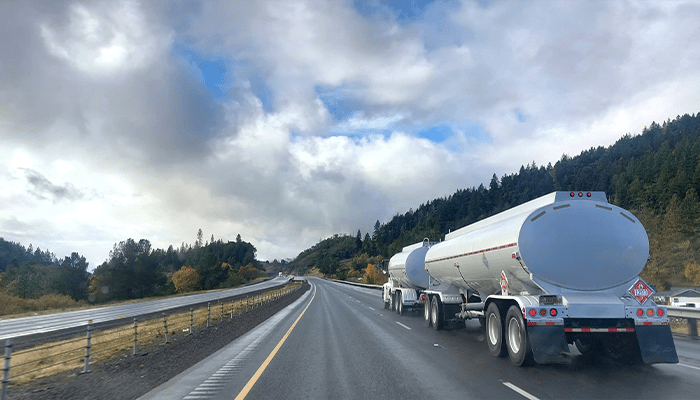
Hurricane and Wildfire Planning: Insurance and Risk Strategies for Business
As we approach the peak of hurricane and wildfire seasons, businesses across the United States face mounting threats to property, operations, and financial stability. According to NOAA, the 2025 Atlantic hurricane season is expected to be active, with forecasts calling for up to 17 named storms, nine hurricanes, and four major hurricanes. Wildfire season projections are equally concerning, with more than 9 million acres at risk of burning, especially in drought-stricken regions like California, Texas, and parts of the Southeast.
Natural disasters can halt operations, displace employees, destroy inventory, and leave lasting financial damage. At AssuredPartners, we help businesses prepare for these risks with insurance strategies, risk control planning, and claims support that help keep you protected before, during, and after disaster strikes.
Understanding the Risks
Hurricanes
Running from June 1 to November 30, hurricane season brings the risk of high winds, torrential rain, storm surge, and coastal flooding. Even businesses far inland can experience power outages, water damage, and supply chain interruptions. Aging infrastructure, construction near flood-prone zones, and limited drainage systems can worsen the damage.
Wildfires
Wildfire season typically peaks in the summer and fall, but springtime fires can also pose significant risks. Areas near forests, grasslands, or dry scrub are especially vulnerable, and drought conditions, high temperatures, and strong winds can exacerbate wildfire activity. Businesses in vulnerable areas must be prepared for potential evacuations, property damage, and operational disruptions.
Preparing Your Business for Natural Disasters
Risk Assessments
The first step in preparing for natural disasters is to conduct a thorough risk assessment. Identify the natural hazards that could affect your business based on its location and the likelihood of hurricanes or wildfires. Assess building materials, surrounding vegetation, wind and flood zones, historical disaster data, and operational dependencies like critical vendors or offsite data centers.
Business Continuity Planning
A business continuity plan (BCP) details how your business will operate during and after a disaster. A well-tested BCP ensures your operations can continue or resume quickly. Your plan should include:
- Risk Identification: Identify potential threats and their impact on operations.
- Critical Functions: Determine which business functions are essential and prioritize their recovery.
- Recovery Strategies: Develop strategies to restore critical functions, including relocation plans and communication protocols.
- Testing and Maintenance: Regularly test and update the plan to ensure its effectiveness.
Physical Preparedness
Taking proactive measures to protect your property can significantly reduce the impact of hurricanes and wildfires. Here are some steps to consider:
-
Hurricane Preparedness
- Install storm shutters or impact-resistant windows.
- Secure outdoor equipment and structures.
- Elevate critical equipment and utilities in flood-prone buildings.
- Create an emergency kit with essential supplies.
-
Wildfire Preparedness
- Maintain a defensible space around your property by clearing vegetation and debris.
- Install fire-resistant roofing and siding materials.
- Ensure fire hydrants and water supplies are accessible and functional.
- Install spark arresters on vents and chimneys.
- Develop an evacuation plan and conduct regular drills.
For more information on how AssuredPartners can help your business prepare for hurricane and wildfire seasons, visit our Natural Disaster Preparedness page.
Employee Training and Communication
Disaster plans are only as good as their execution. All employees should know evacuation routes, safety procedures, and communication protocols. Keep emergency contact lists up to date and distribute printed and digital versions to all team members. Consider establishing a text alert system or using an app for real-time updates.
Technology and Data Protection
Natural disasters can destroy on-site servers and IT infrastructure. Protect your systems by:
- Using cloud-based data backups with redundancy across regions
- Verifying recovery time objectives (RTOs) with your IT team
- Backing up key financial, HR, and operational systems weekly (or more frequently) for critical operations
Financial Resilience
Being financially prepared means more than carrying insurance. Keep an emergency reserve fund, understand your credit line availability, and review your cash flow forecasts quarterly. Many businesses underestimate the duration and cost of a shutdown; work with financial advisors to model different disaster recovery scenarios.
Insurance Coverage That Protects When It Counts
Insurance is your financial safety net. But not all policies cover hurricane or wildfire losses. Work with a knowledgeable broker to ensure your coverage aligns with your risk profile and region.
Here are some key insurance considerations:
Property Insurance
Property insurance covers damage to buildings, equipment, and inventory caused by hurricanes and wildfires. Ensure your policy includes:
- Replacement Cost Value (RCV): Ensures you’re reimbursed based on today’s rebuild costs, not depreciated value
- Named Perils vs. All-Risk Policies: Confirm hurricanes and wildfires are covered; some policies exclude wind, flood, or smoke damage
Business Interruption Insurance
Business interruption insurance compensates for lost income and operating expenses during the period your business is unable to operate due to a covered event. Key aspects to consider:
- Coverage Limits: Ensure the policy limits are sufficient to cover your business's needs.
- Waiting Period: Understand the waiting period before coverage begins and consider purchasing a policy with a shorter waiting period if necessary.
- Extra Expense Coverage: This covers additional costs incurred to minimize the interruption, such as renting temporary office space.
Additional Coverage Options
Depending on your business's specific needs, you may want to consider additional coverage options:
- Flood Insurance: Standard property insurance policies typically exclude flood damage. Purchase a separate flood insurance policy if your business is in a flood-prone area.
- Equipment Breakdown Insurance: This covers the cost to repair or replace equipment damaged by a covered event.
- Debris Removal Coverage: This covers the cost of removing debris after a disaster.
Ready to strengthen your disaster plan? Visit our Natural Disaster Preparedness page for helpful resources.
Working with AssuredPartners
AssuredPartners is dedicated to helping businesses prepare for and recover from natural disasters. Our team of experts can assist with risk assessments, business continuity planning, and insurance coverage reviews. We offer a range of resources, including preparedness guides and claims reporting information, to support your business before, during, and after a disaster.
Preparedness Guides
Our preparedness guides offer detailed steps and checklists to help businesses mitigate risks and protect their assets. Some of the available guides include:
- Hurricane Preparedness Guide for Businesses
- Wildfire Preparedness Guide for Businesses
- Flood Preparedness Guide for Businesses
- Earthquake Preparedness and Response Guide for Businesses
Claims Reporting
In the event of a disaster, timely claims reporting is crucial for a swift recovery. In the aftermath of a disaster, we help clients file, document, and manage claims quickly and efficiently. Our local agencies and national carrier partners ensure you have dedicated support during a critical time.
Conclusion
No business is immune to the growing threat of natural disasters. Whether it’s a direct hit from a hurricane or a nearby wildfire pushing smoke and ash into your facility, the financial and operational impact can be significant. By taking steps now to assess risk, protect your assets, and secure the right coverage, you’ll be better positioned to respond, and recover, faster.
AssuredPartners is here to help. Our team of experienced property and casualty advisors works alongside you to build risk management strategies tailored to your business. Find an office near you.
Related articles

Commercial property insurance is one of the most important pieces of your risk management program. Whether you manage a portfolio of properties or operate one main location, your buildings and...

As the year comes to a close, business leaders are often focused on budgets, performance metrics, and new initiatives. Yet this season is also one of the most important checkpoints for risk...

Transporting hazardous materials in bulk packages or cargo tanks presents unique safety and regulatory challenges. Motor carriers and their personnel must be fully aware of federal requirements for...